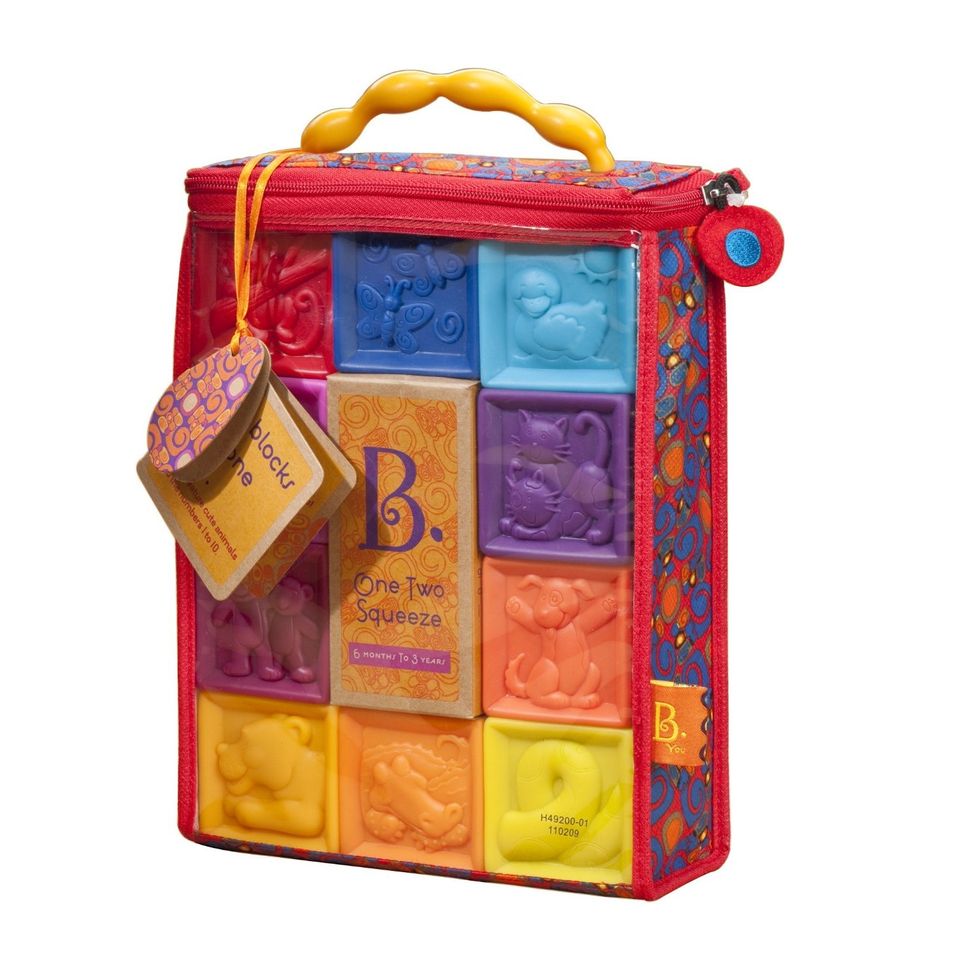Helping your 6-month-old thrive: Tips + activities
Use bath time to learn new things.

*This article is sponsored by ParentPal. Thank you for supporting the brands that support Motherly and mamas.
Your curious kiddo is getting the hang of lots of new things this month: eating (and playing with) solid foods, sitting unassisted, sleeping on a schedule (with two naps!) and making new sounds. So get ready for lots (and lots) of peekaboo now that your baby understands cause and effect.
Dr. Tovah Klein, head of the Toddler Center at Barnard College and author of How Toddlers Thrive, shares fun ways you can play with your baby to encourage exploration and get lots of giggles in the process.
To help support your baby’s development and track routines like sleep and feeding, you can try an app like ParentPal™. ParentPal is the only all-in-one parenting app with everything you need to support, track, and celebrate your child’s healthy development. Developed by Teaching Strategies, the leaders in early childhood development, and the creators of Baby Einstein, ParentPal provides trusted, research-based guidance and parenting tools at your fingertips. You can use the Daily Plan of age-appropriate activities, Milestones, Sleep, Health & Wellness Trackers, and a vast library of age-based resources for your middle-of-the-night parenting questions.*
Tips for your 6-month-old
Play peekaboo.
Try putting your hands over your face and ask, “Where’s Mommy?” then remove them. This game, played over and over, helps your baby learn that you go bye-bye, but then you come back. This helps her learn about separation from you, and helps her practice saying goodbye, knowing that you will be back. Plus, it is a lot of fun!
Play back-and-forth games.
Give your baby a toy, then put your hand out and say, “Now give it to Mommy.” Eventually she’ll give it back (it’s okay if she doesn’t; she may just want to hold it, too). Then you can say, “You gave it back. Now I give it to you.” Babies love this game and can do it over and over. She also likes to copy you. If you bang on a toy, she will try it too.
Use bath time to learn new things.
Give your baby clean, empty plastic containers. Fill them with water, then let your baby pour it out and see what happens as the water falls, or when she pours it into an empty cup. This is how she learns about how things work and it helps her brain develop.
When she splashes and you laugh, she learns about connecting and playing with you. This will help her learn about playing with other people, and friends, as she gets older. Bath time may also be the one quiet time you get alone with her. When you gently bathe her, and snuggle her in a towel afterward, she enjoys being with you. This helps her feel good about herself and shows her how much she is loved.
Let her play with her food.
Aside from eating new things, experiencing how it feels is another way of learning.
From building block towers to making music together, child development psychologist Dr. Holly Ruhl has week-by-week tips for month seven.
Week-by-week activities
Week 1
Now that baby is sitting independently, a family-friendly concert in the park would be a mutually rewarding activity for you and baby. Bring a picnic blanket, baby carrier, and a few toys to keep your tot content during intermission. Even young infants are predisposed to comprehend and appreciate music, and your little one will love it even more if you enjoy it, too!
Week 2
Mamas often get caught up in the daily grind. This week, put down the phone and make room for classic play time with your tot. Roll around on the carpet, build block towers and play demolition, read books, roll a ball back and forth, or put a box on your head and help your babe remove it—Peekaboo, Mama! This quality interaction fosters baby’s competence and security.
Week 3
Baby needs many hands-on experiences to develop adaptive grasping skills. Fill a box with household items of varying textures, sounds, smells, and colors for your tot to explore. Put doubles of each object in the box to help baby find pairs, mimic baby’s behaviors with matching objects, and introduce the idea of “two,” a concept developed in the second year.
Week 4
Exploration with music can develop motor skills, socio-emotional awareness, and so much more! Engage your little one with egg shakers, maracas, bells, or good ole’ pots and pans. Baby will develop the foundations for rhythm by shaking and whacking instruments, moving to the beat and learning hand motions to beloved children’s songs.
A treat for little one: B. One Two Squeeze Blocks

Build. Topple. Repeat. Baby will love watching you create a tower of blocks and then helping to knock it down. These squeezable, floatable and of course chewable blocks are perfect for little hands to grab.